What does Radio 4 mean to you? The Today programme? Desert Island Discs? Woman’s Hour? The Archers? Even with the mind-boggling proliferation of podcasts, the BBC network stands alone as a repository of speech content like nothing else in the audio world, and it’s a treasure trove that most of us barely scratch the surface of.
Beneath that surface resides an archive of material of incredible range and richness – no more showing its age than great movies or great books. Thanks to BBC Sounds, hundreds of episodes of our favourite programmes remain available to listen to, years or even decades after they were first broadcast.
We’ve made a selection of the best of them – timeless classics that offer to extend the listening experience beyond what’s hot and new and which may not last. David Attenborough on Desert Island Discs? “The Epic of Gilgamesh” on In Our Time? “I Will Survive” on Soul Music? It’s all here and more.
In Our Time
Melvyn Bragg’s big-brained series, in which a trio of academics join him to discuss a different figure or event in history, launched in 1998 and is now a global phenomenon. More than a thousand episodes are available — from Confucius to the Jacobite Rebellion — and it’s like sitting in on the best university tutorial without any of the stress of having to contribute to it. Lessons in the past don’t really change, and anyway In Our Time likes to eschew topicality. We learn about subjects like Benjamin Disraeli or the Hanseatic League or The Knights Templar for their own sake. Then again it’s fascinating to now listen to a 2005 edition on artificial intelligence. Bragg will be 86 in October and still keeps his panellists on their toes.
Desert Island Discs
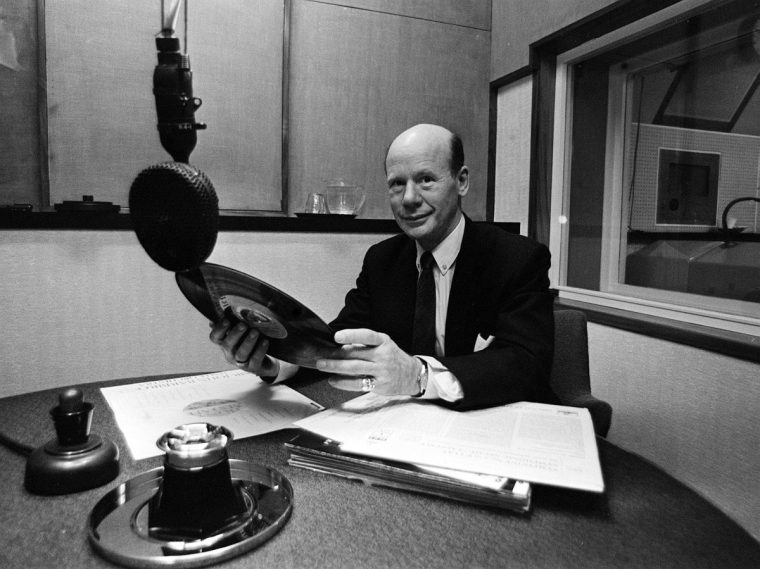
Rivalled only by The Archers as the supreme emblem of Radio 4, Desert Island Discs might be the best radio format ever devised. Its originator and first presenter, Roy Plomley, still gets a credit at the end of every programme, and the fact that there have been only five presenters in total since DID launched in 1942 – Michael Parkinson, Sue Lawley, Kirsty Young and present incumbent Lauren Laverne are Plomley’s successors – says everything about its cherished status. More than 2,500 episodes are available – from Maya Angelou to Jacqueline du Pré and Jilly Cooper to Benny Hill.
The Reunion
Occupying the dozen or so weeks of the year when Desert Island Discs takes a break, The Reunion brings together a group of people to look back on a key moment from their past lives that had an impact on the wider world and that they were all involved in. More than 200 episodes are available, starting with one in 2003 in which original presenter Sue Macgregor and her guests looked back the then 25 years to the birth of the world’s first test-tube baby. Kirsty Wark became the presenter in 2020 – topics in the most recent series included the fall of the Berlin Wall and the 2012 Paralympics – and it’s always a compelling listen.
Archive on 4
Unlike The Reunion, which is all testimony and lived experience from a group of guests, Archive on 4 takes a more orthodox, documentary approach to events from the past, pulling together interviews and reports from yesteryear and invariably telling stories with great care, depth and intelligence. More than 600 episodes are available, each very often linked to an anniversary. Recent topics having included “Into the Sharkiverse”, marking 50 years since the release of the movie Jaws, and the story of Philippe Petain, 80 years on from the trial of the French military hero turned Vichy government leader, both of them outstanding.
Just One Thing with Michael Mosley
What a legacy Dr Michael Mosley left behind following his sudden death in 2024, some of his best work featuring in his Just One Thing series, in which he offered priceless tips on the small everyday ways we can improve our health. From reading a poem to eating slowly, and from standing on one leg to embracing the rain, more than 100 episodes are available, the beauty of them lying not so much in the tips themselves as Mosley’s own engaging personality. And when it comes to trying to meet these challenges, he seems to be just like the rest of us – all too flawed.
Just a Minute
This legendary comedy panel game has never stopped bringing joy, and of the 100-plus episodes available – it launched in 1967 – there are still some we can listen to that date back to the era of Nicholas Parsons, JAM chair from almost the very beginning through to 2019, a few months before his death at the age of 96. Try one from 1976, with a panel of Kenneth Williams, Peter Jones, Alfred Marks, and Sheila Hancock. Since then, Paul Merton has become the panellist with the second most appearances (behind Clement Freud), and, in the chair, Sue Perkins has proved a brilliant successor to Parsons.
The Life Scientific
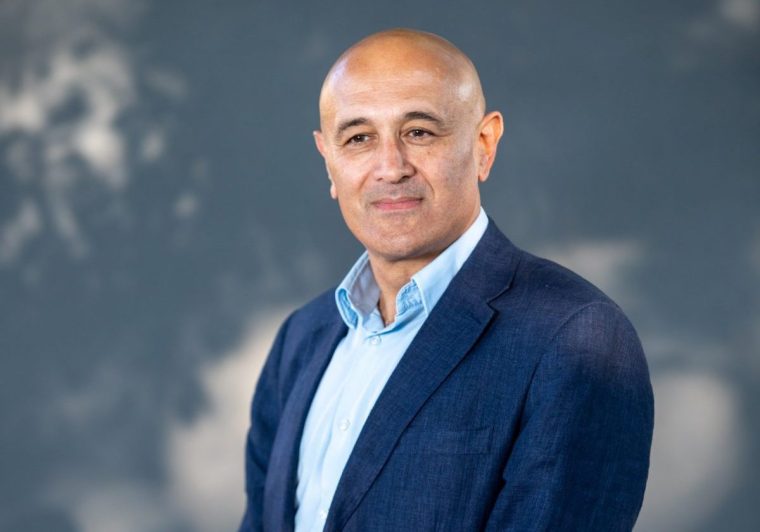
There’s no better interviewer on the radio than Jim al-Khalili and what he does in giving leading scientists the chance to reveal both themselves and their specialisms can’t be over-estimated. With the occasional exception of guests like Bill Gates, his interviewees are not household names, but their stories are invariably fascinating, and in the 300-plus episodes available – the series began in 2011 – we are introduced to figures whose expertise embraces everything from migraine attacks to botany. A delight and an education.
Soul Music
No Radio 4 programme carries more emotional heft than this deep dive into a powerful song or piece of music and the impact it’s had on listeners. The contributors might be well known or might not be – it’s all about the stories, like the heartbreak that will always be associated with Pink Floyd’s “Shine on You Crazy Diamond” or Neil Young’s “Harvest Moon”. More than 200 episodes are available and the music ranges from Gerry Rafferty’s “Baker Street” to Elgar’s cello concerto. There’s no presenter, just testimony, and it’s all put together immaculately.
Great Lives
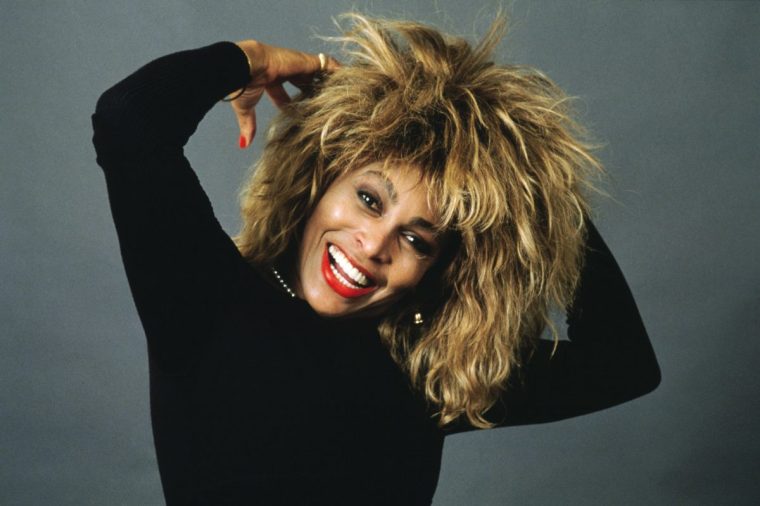
Radio 4’s biography series will celebrate its 25th anniversary next year, and in its quarter-century has celebrated a staggering range of figures without ever being hagiographic. There are nearly 600 episodes available, going all the way back to 2001 and subject number one – postwar prime minister Clement Attlee. The original presenter was Joan Bakewell but the show’s long been in the hands of Matthew Parris, whose unfeigned fascination with everyone from Sylvia Pankhurst to Tina Turner is one of the programme’s great strengths.
Mark Steel’s in Town
Stand-up comedian and Radio 4 panel show regular Mark Steel has been touring the country – and occasionally beyond – since 2009, identifying what’s unique and often ridiculous about his chosen locations in a way that his live local audiences generally haven’t noticed, but always lap up. The funny side of Colchester? Of Skipton? Of King’s Lynn? Steel will find it, offering listeners the most brilliantly absurd travelogue in 70-plus available episodes.
This Cultural Life
The interview series with leading cultural figures focuses on formative experiences and influences, its 130 available episodes adding up an extraordinary record of how a vast range of creatives came to be who they are. The interviewer is John Wilson, and while this is no In the Psychiatrist’s Chair, his exploration of his guests’ early lives takes us a lot further than the usual slice of promotional puffery that artsy encounters so often consist of. The disrupted childhood that The Who’s Pete Townshend tells us about is just one example of the kind of opening-up the series deals in, and there’s fascination in every encounter, from Zadie Smith to Lee Child, and Nicole Farhi to Maggi Hambling.
Open Book
It was a year ago that this long-running Radio 4 books programme came to its end after more than 20 years, giving way to a very different successor in Take Four Books. The new programme consists of a single interview with an author with a book out; what’s gone is Open Book’s wider reflection of the current scene, its features and discussions retaining their value. More than 700 episodes are still available, covering issues that range from the ethics of writing crime to bookshops as social spaces. Doris Lessing, Malorie Blackman, Alan Hollinghurst and Martin Amis are among the many interviews worth revisiting.
The Film Programme
Like Open Book, The Film Programme, which began in 2004, performed a terrific service, keeping listeners up to speed on new releases and trends in a way that isn’t the brief of its sort-of successor Screenshot. There are a staggering 800-plus episodes still available, and it’s fascinating to go back to – for example – a 2004 edition, and hear Renée Zellweger and Hugh Grant being interviewed by longtime presenter Francine Stock about the second onscreen outing of Bridget Jones. The credits may have rolled on The Film Programme, but it’s movie gold that still shines.
Thinking Allowed
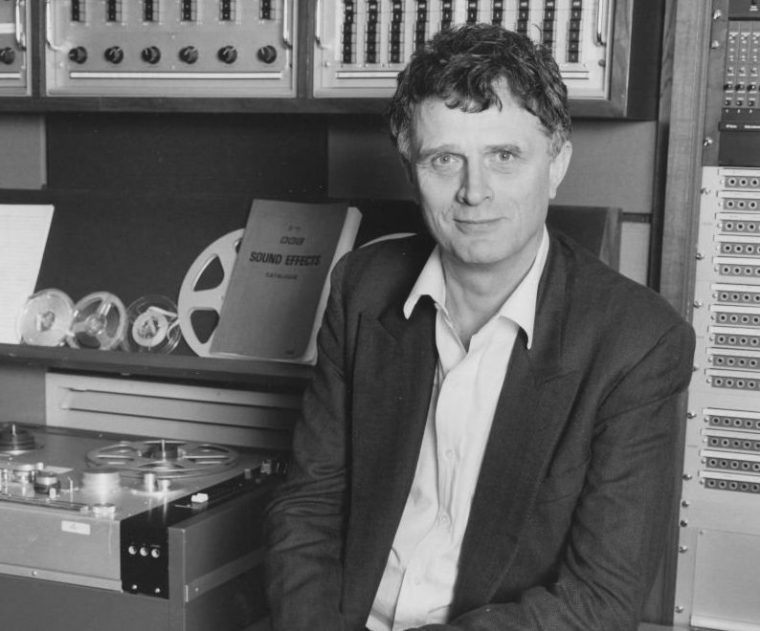
At 89, Thinking Allowed presenter Laurie Taylor can claim seniority over even Melvyn Bragg, and, like Bragg, his longevity – in tandem with his wit and brainpower – has made him a radio legend. Thinking Allowed is where Taylor – the original rock’n’roll sociologist – gathers up recent academic research and talks to the professors and lecturers behind it. In well over 700 available episodes, the range of studies Taylor covers, from hoodies to high finance to memorial benches to perfume, is mind-boggling.
Drama on 4
The number of one-off plays that Radio 4 broadcasts has shrunk in recent years – which has caused dismay among the creatives involved in the genre. But there’s consolation in the availability of more than 400 productions in the Drama on 4 slot, ranging from adaptations of work by classic novelists such as Elizabeth Gaskell to then new contemporary writing from such radio play eminences as David Nobbs. It’s also where you’ll find a whole pantheon of acting greats: Kenneth Branagh, Jim Broadbent, Diana Quick, Sophie Okonedo, doing some of their most powerful work.
The Briefing Room
By its nature, David Aaronovitch’s drill-down into a topical issue responds to the news agenda, but that doesn’t mean it ceases to have relevance post-broadcast. The quality of the guests he assembles – and the neutrality of their standpoints – give lasting value to the answers they give to questions that range from “How prepared are we for cyber threats?” to “Why is anxiety and depression increasing in the UK?” The Briefing Room is the essence of “more light, less heat”, and 360 episodes are available going back to when the series began in 2016.
Woman’s Hour
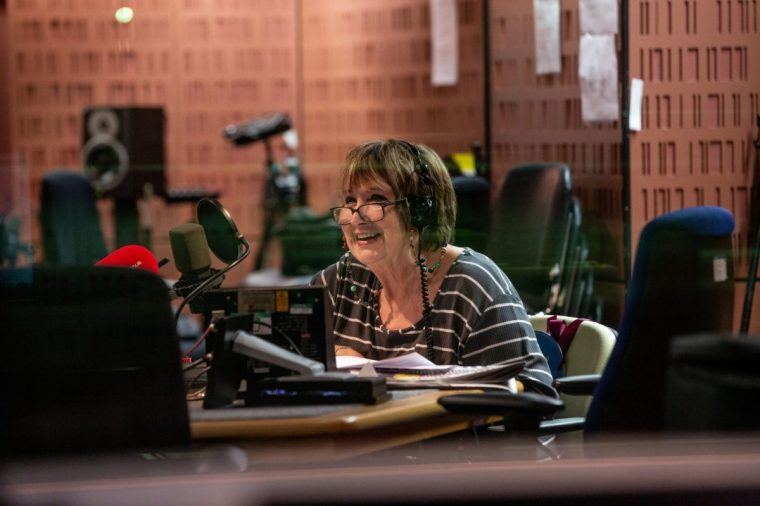
It’s a curious fact that editions of Woman’s Hour – an institution going back to 1946 – stick around on BBC Sounds for so long that there’s the opportunity, should one wish it, to track entire generations’ worth of women’s concerns. Editions such as Margaret Thatcher talking to Jenni Muray about her time as prime minister (from 1993) sit alongside appearances by such icons as Carly Simon discussing her breast cancer diagnosis (from 1999). Nearly 5,000 – correct, 5,000 – episodes are available.
Gardeners’ Question Time
Don’t the same questions about tomato blight, mulching, diseased lawns and so on come round every year on radio’s most cherished gardening advice programme? Indeed they do – but dig deep, as it were, into an archive comprising more than 800 episodes and the range of problems solved is almost limitless. And there’s the added interest of the programme, which began in 1947, giving us a never-ending tour of horticultural Britain, with garden clubs and other locations playing host from Cornwall to Aberdeenshire. Devoted listeners might still be missing longtime GQT chair Eric Robson – he retired in 2019 – but here he still is, marshalling Pippa Greenwood, Bob Flowerdew, Anne Switihinbank et al.
Any Questions?
Is there anything other than academic interest in what issues were exercising audiences from so long ago? And in what MPs and other prominent figures of the day had to say about them? Who knows, but here it is, an archive going back as far as 2009, which comprises more than 800 editions, the era of the chairmanship of Jonathan Dimbleby and occasional stand-ins including Martha Kearney and Eddie Mair.
